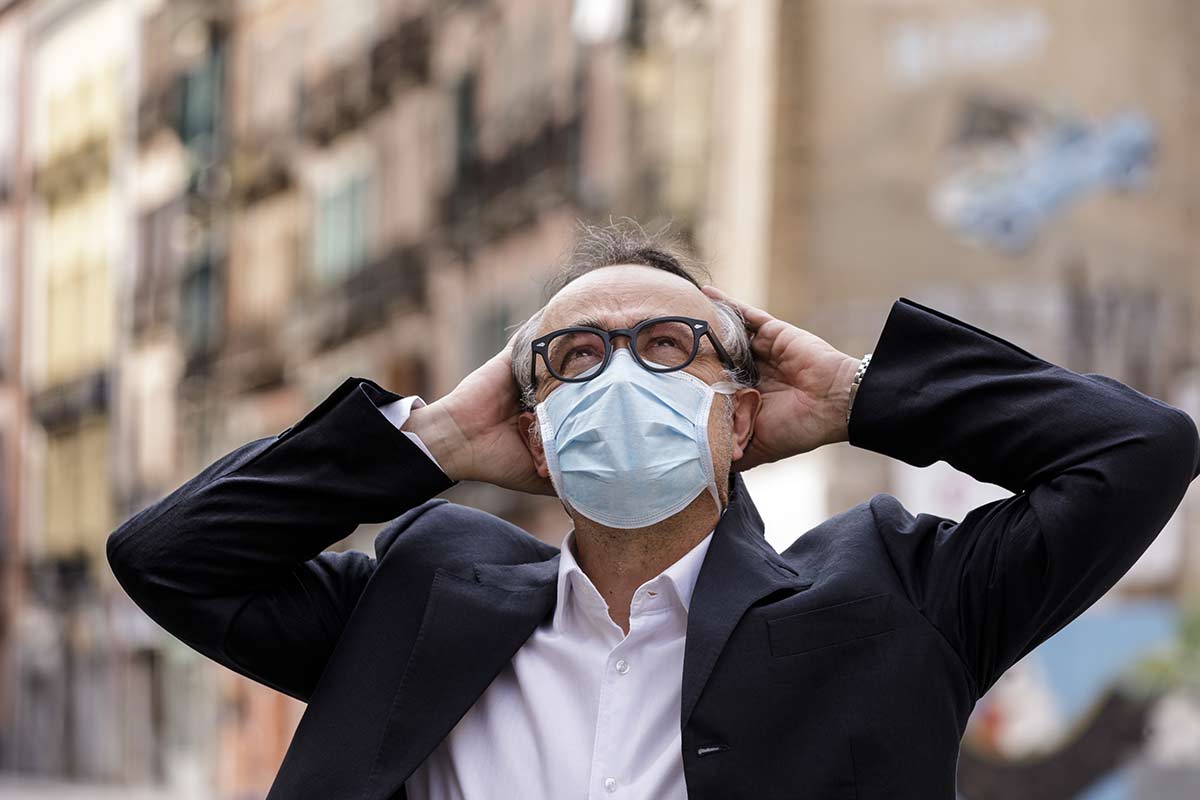This article was published on: 04/13/20 2:49 PM

This is a time when pretty much the entire world is feeling anxious and overwhelmed. However, this doesn’t mean that your health-related anxiety, OCD or specific phobia won’t be rearing their ugly heads. As we know, anxiety and OCD tend to hit where it hurts most. Meaning, they attack what is most meaningful to you. So put on your boxing gloves and don’t allow your anxieties, worries, and fears to bully you, even more, when the chips are down. Some people may experience a temporary setback that doesn’t have to develop into relapse.
The most adaptive and helpful way to respond to the current health concerns is to follow the CDC and WHO guidelines. Experts at the International OCD Foundation (IOCDF) and the Anxiety and Depression Association of America (ADAA) encourage that you continue with your current treatment program and set guidelines with your therapist and temporarily modify your exposure and response prevention (ERP) plan as necessary. This may mean modifying washing and checking rituals as medical experts are encouraging frequent washings with soap and water for 20 seconds. OCD, health anxiety and emetophobia are going to love this and will try to convince you that you must wash excessively. Modification could mean that If you’re currently working on contamination exposures for OCD, health anxiety or emetophobia that you temporarily change the way you’re conducting exposures and that you implement new and temporary washing and checking guidelines.
If you suffer from panic disorder, social anxiety or body dysmorphia you likely will not be able to practice exposures in the manner you are accustom to. Typical exposures include going out to public places, restaurants, social events, movie theaters, exposing yourself to the “possible” scrutiny of others, initiating social interactions, attending classes or meetings and asking questions, driving, etc. You and your therapist can get creative here so that you don’t lose any momentum. There are plenty of options to utilize imaginal exposure work via scripts, magazines, videos, articles, telephone and other novel measures. There are also apps that may be helpful, possibly even virtual options. Collaborate with your therapist to ensure that you continue to receive the best and most effective care.
This experience may even prove to be an opportunity to discover more effective exposure ideas. With everyone out there advocating, both clinicians and people with anxiety and/or OCD and related conditions, we may be able to help many people with more ways to implement exposure therapy. Try and take advantage of this down time to utilize your CBT work in new and novel ways. You might even find your telehealth sessions to be more beneficial than traditional office visits as you and your therapist can access exposure items in your home. This cuts down on cost as home visits can be extremely beneficial but can also be more costly due to travel fees.
As we frequently hear via media outlets, “we’re all in this together”. Let us make the best of this as we can. IOCDF and ADAA anxiety and OCD experts are recommending that you not follow every news update. We realize that under normal circumstance we would not ask you to completely avoid triggering events. You would be encouraged to approach them according to your exposure plan. AND, cut yourself some slack. If you’ve found yourself getting sucked into the media, checking for COVID-19 updates, dial back. I you’re finding yourself too triggered by the media and are avoiding it all together, disclose this to your therapist and start engaging in some lower level exposure tasks. Above all, don’t forget to be compassionate with yourself as stress can exacerbate symptoms. It’s most important that you catch subtle behaviors that may be fueling your anxiety and/or OCD to prevent symptoms from escalating.
Finally, make sure that you do not isolate. The Governor of the State of Maryland issued a stay-at-home order on March 30th. Do not let this be reason for alarm, it is an effort to stop the unnecessary spread of the virus, which is what we want so our lives can return to baseline. To avoid isolation, stay in contact with others. There are multiple ways to do so. People are hosting chats, book clubs, playing games, taking music lessons, playing music, hosting happy hour, etc. all via video. The new Maryland guidelines issued on March 30th do not prevent people from leaving their homes completely. It’s important for psychological well being to get outside. You can go outside with members of your household and take your dog for a walk as long as you maintain safe social distancing. You cannot host a party or invite others into your home but you can take measures to avoid becoming isolated.
Maybe having to stay at home will prove to be an opportunity to slow down your pace and work on self care. Maybe you can take up new hobby or to learn something you’ve always wanted to learn. One of the things that clinicians at The Maryland Anxiety Center suggest is to keep a structured daily schedule. It’s easy to fall out of regular sleep/wake patterns and to work or stay up late at night since most of our daily structure is imposed by our work or school environments.
Try to create and follow a planned weekly schedule that you will be able to follow easily by loosely blocking out time for work projects, phone calls/emails, house chores (laundry, dishes, cleaning, meal prepping, etc), house projects (redecorating or painting a room, converting a space into a home office, creating a workout space, building a garden, etc) and maybe errands/grocery shopping. Don’t forget to incorporate leisure and social activities, entertainment, family time, self-care, exercise, etc.
To help with accountability, make sure to track whether or not you followed your schedule and if you did not, track what got in the way and how you spent your time instead. This will help you see what’s working, what’s not and how to modify your schedule effectively. It will also tell you whether anxiety management or depressive symptoms are interfering in your daily functioning. If so, it is imperative that you seek professional help.
If you’re already feeling alone and isolated, please reach out and/or seek treatment with a qualified mental health clinician to help you get through this tough time. Isolation can lead to even more anxiety and can exacerbate or lead to depression. You can find a qualified therapist at IOCDF.org and adaa.org.
written by Andrea Batton, LCPC, Clinical Director

 The Maryland Anxiety Center was founded by Andrea G. Batton, LCPC with a vision of creating a practice where clinicians and staff work cohesively and collaboratively with patients to provide optimal psychological care. The Maryland Anxiety Center specializes in the treatment of anxiety and related disorders from a cognitive behavioral perspective, the gold-standard and most effective treatment for such conditions.
The Maryland Anxiety Center was founded by Andrea G. Batton, LCPC with a vision of creating a practice where clinicians and staff work cohesively and collaboratively with patients to provide optimal psychological care. The Maryland Anxiety Center specializes in the treatment of anxiety and related disorders from a cognitive behavioral perspective, the gold-standard and most effective treatment for such conditions.